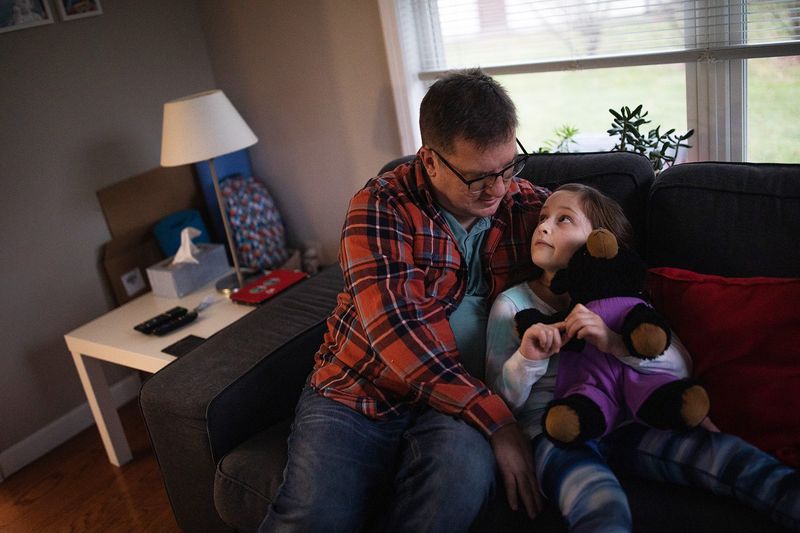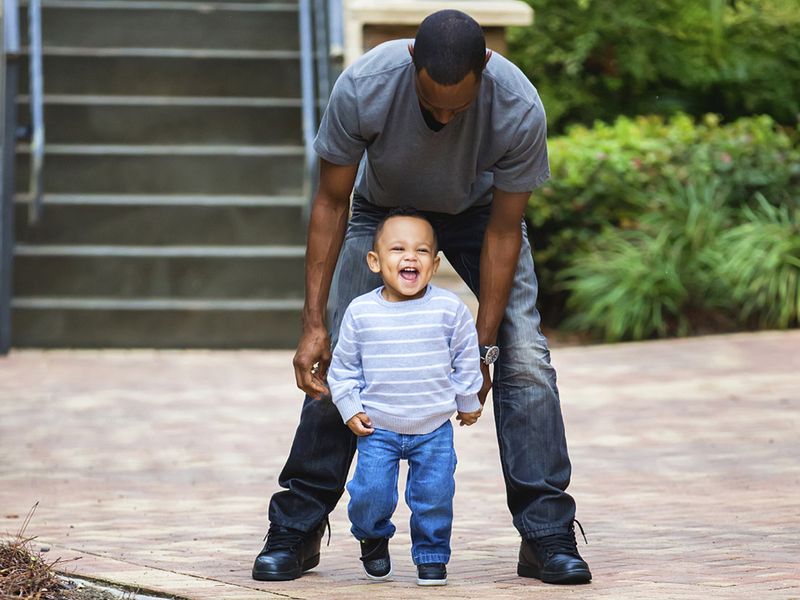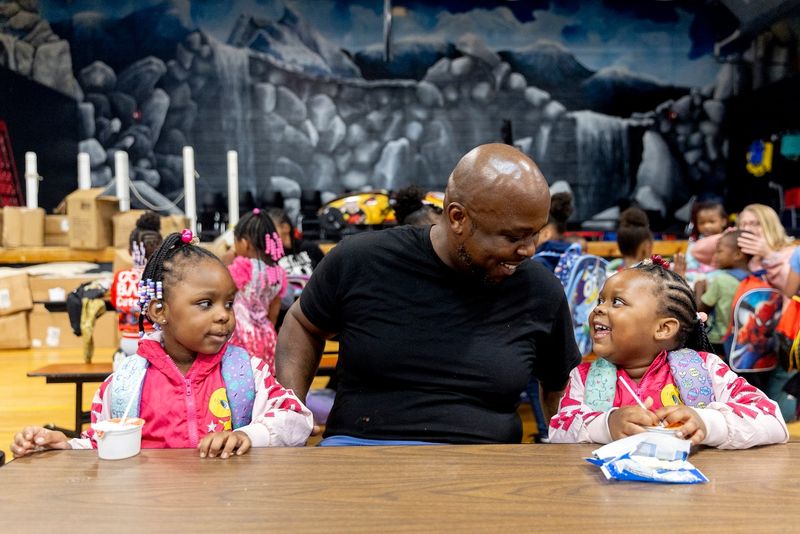The role of a father in a child’s life is multifaceted, intricately impacting emotional, psychological, and social development. This post explores 16 distinct ways this dynamic shapes our kids, focusing on the differences between engaged and absent father figures.
By understanding these impacts, we can better nurture healthy familial relationships, ensuring that children grow up in supportive and balanced environments.
1. Kids Learn What To Expect From Men
Children absorb behaviors and attitudes from those around them, especially their fathers. When fathers are involved, they model healthy relationships and set expectations for how men should behave. A child whose dad listens, respects, and supports will likely look for these traits in others. On the other hand, absent fathers can lead kids to accept neglect or emotional distance as normal.
This modeling profoundly influences how children perceive relationships with male figures throughout their lives. Boys often learn how to treat women and girls learn what to expect from men. Whether positive or negative, these lessons are lasting.
2. Confidence Can Take a Quiet Hit
Confidence in kids often blossoms with encouragement and support. An involved father can provide this foundation by offering praise and recognizing achievements, no matter how small. Without such encouragement, children may struggle to believe in their abilities and worth.
This can lead to a lifetime of second-guessing themselves and lacking self-assurance, impacting educational pursuits, friendships, and career choices. The quiet absence of a father’s voice cheering them on can lead to a quieter confidence, difficult to rebuild. It’s the little moments of affirmation that children carry with them, shaping their self-image significantly.
3. Emotional Safety Isn’t a Given
One of the most critical aspects of parenting is creating an emotionally safe environment. Fathers who are emotionally present help children feel secure and valued. In contrast, the absence of this presence can leave kids feeling exposed and unprotected. Emotional safety allows children to express their feelings without fear of judgment or ridicule.
In homes where a father’s emotional support is missing, children might hide their emotions or develop coping mechanisms that hinder genuine expression. The feeling of not being emotionally ‘held’ can leave a lasting void, influencing future relationships and personal well-being.
4. Some Kids Overcompensate, Others Retreat
Children react differently to their family dynamics. In the case of an absent father, some may overcompensate, becoming overly responsible or taking on adult roles prematurely. These kids might feel the need to fill a gap, striving for perfection to gain approval. Conversely, others might retreat, withdrawing into themselves due to a lack of guidance or emotional support.
This divergence in reactions affects their social interactions and self-esteem, creating challenges in balancing their inner worlds. Each child’s journey is unique, shaped by how they perceive and respond to the presence or absence of a father.
5. Trust Becomes a Slippery Concept
Trust is a fundamental building block in relationships. A father’s reliability can teach children the importance of trust, influencing how they relate to others. When trust is broken or never established, children may struggle to believe in the reliability of people around them. This skepticism can seep into friendships and future romantic relationships, creating barriers to forming deep, meaningful connections.
The absence of a trusted male role model can make trust feel elusive, a constant challenge rather than a given. For children, learning to navigate this complex terrain without a father’s guidance can be daunting.
6. Girls May Confuse Absence With Normalcy
For girls, the absence of a father might become a quiet norm. They may grow up believing that male absence or emotional distance is typical in family dynamics. This perception can lead to accepting less than fulfilling relationships in the future, not recognizing their worth or right to expect more. The normalization of absence can cloud judgment, affecting how they choose partners and friends.
Understanding what healthy involvement looks like is crucial for these girls to seek out and build balanced relationships. Without this awareness, the pattern of absence may perpetuate through generations.
7. Boys Might Confuse Strength With Silence
Boys often look to their fathers to learn about masculinity and strength. An engaged father teaches that strength includes vulnerability and open communication. However, when fathers are absent or emotionally unavailable, boys might equate strength with silence, internalizing struggles rather than expressing them.
This misunderstanding can lead to issues in emotional expression and relationship building, as they may fear appearing weak. Recognizing that true strength encompasses emotional honesty is vital for their personal development. Fathers, through their own actions, can redefine what it means to be strong, encouraging boys to express their complete selves.
8. Support Gets Replaced With Performance Pressure
Involved fathers can provide a balance between support and expectations. Without this balance, children may feel immense pressure to perform, equating achievements with love or acceptance. This can create a relentless cycle of striving for success without the cushion of emotional support.
The absence of a father’s presence might leave kids feeling unsupported, where only their accomplishments seem to matter. This pressure can manifest in stress, anxiety, and burnout, overshadowing personal growth and happiness. Children need the reassurance that they are valued for who they are, not just what they achieve.
9. Presence Isn’t the Same as Participation
Being present in a child’s life goes beyond physical presence. Fathers who are there but not truly engaged might miss crucial opportunities to connect and guide. Participation means actively listening, sharing experiences, and being emotionally available. The difference between mere presence and active participation can define a child’s perception of love and attention.
When fathers are disengaged, even if physically there, children may feel overlooked or undervalued. This lack of genuine interaction can lead to feelings of isolation and diminished self-worth, affecting how they engage with others outside the family.
10. Affection Can Feel Conditional
Affection from a father can sometimes feel tied to a child’s achievements or behavior. When love seems conditional, children might believe they must earn affection through accomplishments. This perception can lead to anxiety and a constant need to prove themselves, impacting their self-esteem and mental health.
Fathers who express unconditional love help build a secure foundation, where children understand they are valued for who they are, not just what they do. Breaking the cycle of conditional affection is key to fostering a child’s confidence and emotional well-being, reassuring them of their intrinsic worth.
11. Emotional Expression Gets Stifled
Children learn emotional expression from their surroundings. An emotionally available father encourages open communication and sharing of feelings. Without this, children might suppress emotions, fearing judgment or misunderstanding. This stifling of expression can lead to emotional bottling, where feelings of sadness or frustration are internalized.
Boys, in particular, may feel societal pressure to remain stoic, leading to challenges in forming emotional connections later in life. The ability to express emotions freely is crucial for healthy mental health and relationships, making a father’s role in this learning process indispensable.
12. They Watch the Relationship Dynamic—Closely
Children are keen observers of their parents’ relationship dynamics. They learn about conflict resolution, communication, and partnership by watching interactions between their parents. Fathers who model respect, empathy, and understanding provide a blueprint for healthy relationships.
Conversely, negative interactions or emotional absence might skew a child’s understanding of partnership, leading to repeating unhealthy patterns in their own relationships. Children internalize these dynamics, making it important for fathers to be aware of their actions and words. The example set by parents guides children in their future relationships, highlighting the need for positive modeling.
13. Apologies Become Rare or Performative
An apology can be a powerful teaching tool. Fathers who apologize sincerely teach children the value of accountability and repair in relationships. When apologies are rare or performative, children may not learn the importance of acknowledging mistakes and making amends. This gap in understanding can affect their social interactions and personal growth, leading to unresolved conflicts and strained relationships.
Genuine apologies foster a culture of trust and respect, crucial for healthy family dynamics. Fathers play a key role in demonstrating how to apologize meaningfully, setting a standard for their children to follow.
14. They Notice Who Shows Up Consistently
Consistency in showing up for a child speaks volumes about love and commitment. Fathers who are reliably present at school events, birthdays, and milestones reinforce a child’s sense of worth and belonging. Inconsistent presence, conversely, can lead to feelings of neglect or unimportance. Children notice who is there during important moments, shaping their perception of support and reliability.
The act of showing up consistently builds trust and security, crucial for a child’s development and confidence. Fathers have the opportunity to reinforce their commitment through presence, leaving a lasting impression on their children’s lives.
15. Conversations Lack Depth
Depth in conversations between fathers and children enriches their relationship. When discussions remain superficial, children might feel disconnected, missing out on opportunities for guidance and understanding. Fathers who engage in meaningful talks provide children with insights and support, fostering a sense of closeness and trust.
Without this depth, conversations can feel hollow, lacking the substance needed for emotional bonding. The ability to communicate openly and thoughtfully is a gift that fathers can give, encouraging children to share their thoughts, dreams, and challenges. Rich conversations lay the groundwork for a strong, supportive relationship.
16. The Silence Leaves Its Own Legacy
Silence can be as telling as words. In father-child relationships, unspoken words might create distance and misunderstanding. Fathers who avoid difficult conversations or fail to express emotions may leave their children grappling with uncertainty and questions. This silence can become a legacy, passed down through generations, affecting familial bonds and emotional well-being.
Addressing the silence requires courage and willingness to engage, ensuring children feel heard and understood. Breaking this cycle of silence is essential for fostering open communication, helping children learn the importance of expressing themselves and building meaningful connections.

















